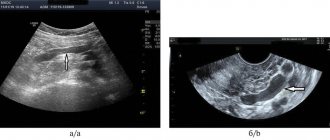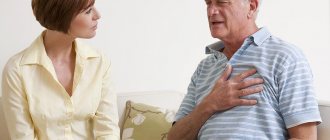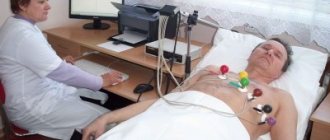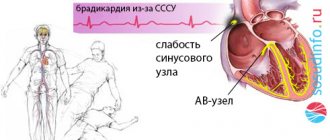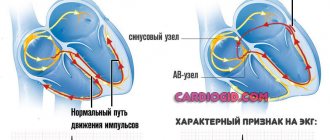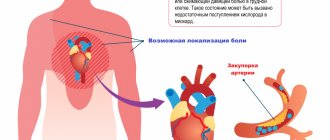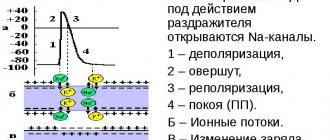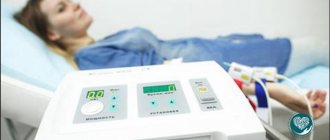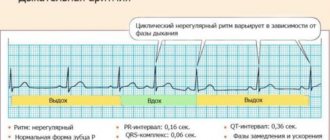Menopause and the heart: how they are related
With the onset of menopause, the heart becomes a target organ.
After 45 years, a woman’s life includes such a concept as menopause. This is an age-related change associated with a decrease in ovarian functionality. It is in them that the synthesis of the female sex hormone estrogen occurs. This is a substance that makes a woman young, healthy, and makes her body work correctly.
Until the age of 45-50, men are 3 times more likely to suffer heart attacks and strokes; after this age, the proportions change. By the age of 55, women suffer from cardiovascular diseases 5 times more than their male counterparts.
Does menopause affect the normal functioning of the cardiovascular system? Definitely yes. For a number of physiological reasons associated with low estrogen levels, a woman may be plagued by two problems: pain and rapid heartbeat. These conditions bring a lot of inconvenience, but do not have a negative impact on health. But at this age, concomitant diseases may also occur, the symptoms of which include pain in the chest.
In medicine, there is a special term that describes heart disorders associated with the onset of menopause. It is called dishormonal cardiopathy. But only a doctor can make this diagnosis; for this, he will conduct a series of analyzes and tests to exclude or confirm the presence of other diseases of the cardiovascular system.
Why does the main organ suffer?
Estrogen is involved in a large number of different processes, including the formation of immunity, protecting the female body from various disorders of organs and systems. But over time, the ovaries begin to produce less and less of this hormone. As a result, the heart becomes unprotected, potassium, magnesium, vitamins PP, group B and others are absorbed quite poorly, and interruptions in its functioning occur.
Also, estrogen deficiency leads to other disorders that lead to the development of pain or arrhythmia.
How to take a hormone test correctly?
Blood tests are taken on certain days of the cycle - the day of the test will be calculated by the doctor. So tests for FSH and LH are taken at the beginning of the cycle - on days 4-5. Analysis for estradiol - 19-22 days. Progesterone test at the same time. There are a number of restrictions before donating blood for hormones; they must be observed, otherwise the result will be distorted. Avoid alcohol and physical activity a week before the test. Do not have sex the day before the test day. Take the test strictly on an empty stomach - in the morning, the break from the last meal should be at least 8 hours. You can drink water. Do not take medications.
Why does heart pain occur during menopause?
The feeling that the heart is pressing or hurts can occur both in premenopause and menopause. The less estrogen is produced, the more severe these symptoms become. Among the main natural causes are the following:
- Accumulation of cholesterol on the walls of blood vessels. The amount of low-density lipoproteins and the total content of these substances increases. As a result, the risk of developing diseases such as coronary disease and atherosclerosis increases.
- Lipid metabolism disorders. In this case, body weight increases and fat deposits appear, especially in the waist and abdomen. This leads to the appearance of type II diabetes mellitus. After 45 years, this disease is aggravated by the appearance of arterial hypertension (up to 80% of patients), as well as heart failure (12-22%).
- Increased blood viscosity. This condition leads to the appearance of characteristic sensations of discomfort accompanied by pain.
- Vascular spasm, loss of elasticity. As a result, the vascular lumen decreases, pressure increases, which, in turn, causes pain.
- Tides. These are attacks that are periodic in nature. In addition to heart pain, there is a sharp sensation of heat in the upper part of the body, the face becomes red, chills and profuse sweating appear. This is the most harmless cause of dishormonal cardiopathy.
Dietary supplements for the treatment of tachycardia
During menopause, the body lacks vitamins and microelements that strengthen blood vessels and the heart. Taking natural remedies helps fill this deficiency and reduces the risk of developing tachycardia.
- Kudesan with potassium and magnesium is an effective means of preventing cardiovascular diseases, strengthens the heart muscles, normalizes the functioning of the nervous system, prevents the development of atherosclerosis, and restores elasticity to blood vessels. The drug is recommended in the complex treatment of hypertension, arrhythmia during menopause.
- Atheroclyphitis Bio contains red clover, hawthorn extract, vitamin C, nicotinic acid, rutin. The tablets reduce the level of bad cholesterol in the blood, maintain the condition of blood vessels, increase their permeability, thin the blood, preventing the formation of blood clots. Taking Atheroclyphitis during menopause can reduce the manifestations of tachycardia, normalize heart function and blood pressure.
- Normal blood pressure has an antispasmodic, hypotensive, anti-sclerotic effect on blood vessels. Improves blood circulation, reduces the excitability of the central nervous system, reduces the symptoms of tachycardia and arrhythmia.
The use of dietary supplements helps with palpitations due to menopausal changes. If the disease is more serious, it is necessary to consult a cardiologist and carry out appropriate therapy.
Palpitations during menopause: what happens in the body?
The heart does not just pump blood, it supplies oxygen to all tissues and organs, working in a certain rhythm of contractions and relaxations. If there is a rhythm failure, then too frequent and rapid contraction of the heart muscle is observed. As a result, the blood does not have time to pump normally and the heart does not have time to rest. A so-called arrhythmia (tachycardia) occurs. This causes a general deterioration in health.
Heart pain of various types is a reason to immediately consult a doctor.
It is recommended to regularly monitor blood pressure, which often signals problems with the cardiovascular system.
Symptoms of this condition are:
- The pulse accelerates. It can reach 100-120 beats per minute during calm periods.
- Dizziness occurs, often with loss of orientation, in severe forms - with a pre-fainting state.
- The appearance of causeless panic. A woman is afraid of losing consciousness, falling (especially in a crowded place), or dying.
- Lack of air. There is a feeling that it is impossible to inhale, the lungs cannot be completely filled with oxygen.
- A lack of oxygen in the tissues provokes a feeling of heat throughout the body.
- Feeling the heart rate. In a calm state, the heartbeat is almost imperceptible. During an attack, the vibrations are clearly felt, the woman can accurately indicate where exactly this organ is located.
Pathogenesis
Symptoms are distinguished depending on the stage of restructuring of the body. In the early period, the following factors are present:
- mood changes;
- increased aggressiveness or irritability;
- increased sweating;
- changes in appetite and taste preferences;
- tides;
- exacerbation of headaches or dizziness;
- frequent changes in blood pressure;
- heartbeat.
The middle period is characterized by the following features:
- anxiety and depression;
- chronic fatigue and feeling of weakness;
- dry skin;
- deficiency of vaginal mucous secretions;
- decreased libido;
- cystalgia;
- impaired concentration.
In the later stages, in addition to the sexual sphere, hormonal changes affect other body systems. The third period is accompanied by the following symptoms:
- increased blood pressure;
- manifestation of atherosclerosis and osteoporosis;
- manifestation of diseases of muscles and joints;
- visual and hearing impairment;
- exacerbation of type 2 diabetes mellitus.
Therapy for dyshormonal cardiopathy
What to do in case of cardiac dysfunction? To lower the heart rate or relieve pain, two methods are used. The first is preventive measures, the second is emergency care for attacks.
To minimize the impact of menopause on cardiac activity, it is necessary:
- Alternate rest and exercise. They should be moderate, without extremes.
- Review your diet. You need to eat often, but in small portions, and exclude fatty, spicy, smoked foods from the menu.
- Forget about stimulants such as coffee, black tea. It is better to switch to green tea, freshly squeezed juices, clean water without carbon.
- Quit bad habits: smoking, drinking alcohol. A glass of red wine is allowed, but not often.
- The room where you are should maintain fresh air at a moderate temperature.
- Take hormone replacement therapy medications prescribed by your doctor. They will restore balance and eliminate most problems.
The most effective treatment for pain and arrhythmias caused by hormonal imbalance is HRT.
Without HRT, it is impossible to solve the problem of heart pain and arrhythmia caused by the onset of menopause.
Medicines for heart pain or arrhythmia
Only a doctor can prescribe medications to relieve attacks. He assesses the woman’s health through tests and hardware diagnostic methods. Only after this is a drug prescribed that will help temporarily alleviate the condition. You can make an appointment with a specialized specialist and get a free qualified consultation using the link https://45plus.rf/registration/.
You need to understand that the root of the problem is hormonal imbalance, so using various traditional methods, choosing your own remedies, or correcting the problem only with cardiac medications is to no avail.
Why do you need to know these values?
To prepare for menopause. In addition to prescribing replacement therapy, a woman should introduce calcium-containing foods into her diet: cottage cheese, fermented milk products, cheese to prevent osteoporosis. You need to undergo a gynecological examination: take a smear for oncocytology, do an ultrasound of the pelvic organs and mammography. You should donate blood for sugar and cholesterol levels. Adjust your diet, move more, follow a sleep and rest schedule. Your doctor may prescribe vitamins or supplements to relieve menopausal symptoms.
Obstetrician-gynecologist of the highest category. Chernovskaya Rosa Uranovna
Healthy lifestyle
To reduce the manifestations of tachycardia during menopause it is necessary:
- lead a healthy lifestyle;
- to refuse from bad habits;
- ensure proper sleep.
Night rest should last at least 6–8 hours. If you are worried about insomnia, sedatives, teas with chamomile, lemon balm or valerian can help.
It is useful to play sports, but physical activity should be moderate. It is recommended to go for a morning jog, walk in the fresh air, and visit the pool. Yoga, reflexology, and massage have a beneficial effect on the nervous system.
It is recommended to review your diet and switch to proper nutrition. Fatty, fried foods increase cholesterol levels in the blood, which further complicates blood circulation, as lipid plaques are deposited on the walls of blood vessels and can lead to the formation of blood clots, heart attack, stroke, and coronary artery disease.
During menopause, you need to eat more fresh vegetables and fruits, whole grain cereals, seafood, and dairy products. You should limit the consumption of sweets, because they disrupt carbohydrate metabolism, promote excess weight gain, this negatively affects the functioning of the cardiovascular and endocrine systems, and contributes to the development of tachycardia and diabetes.
Case from practice
A 56-year-old woman came to the clinic with complaints of rapid heartbeat, arrhythmia, a feeling of lack of air and increased blood pressure during an attack.
The ECG showed no signs of ischemia; some flattening of the T wave was observed on the posterior wall of the left ventricle, which can be considered as an indirect sign of hormonal imbalance or myocardial dystrophy. I recommended: sedatives, Remens, Bisoprolal. To prevent attacks - a diet low in animal fats, consumption of predominantly protein and plant foods, consultation with a gynecologist-endocrinologist. After two weeks of treatment, the condition returned to normal, and attacks began to occur less frequently. Currently taking hormone replacement therapy.
Qualified help
To stop an attack, my colleagues and I usually recommend the following drugs:
- "Lidocaine."
- Antihypertensive drugs (beta blockers Atenolol and Carvedilol work best).
- Sedatives, and in case of severe anxiety - tranquilizers or antidepressants with serotonin reuptake.
Hormone replacement therapy provides good results in the treatment of tachycardia during menopause; many women around the world resort to it. It eliminates hot flashes, rhythm disturbances, protects against the risk of developing osteoporosis, and prevents cardiovascular diseases.
If you want to know everything about tachycardia, we recommend watching the video below at the link. Causes, symptoms, diagnosis and signs that it’s time to see a doctor - talk about all this in 7 minutes. Enjoy watching!
Symptoms of menopause that are important to know about
Harbingers of menopause, stages
Symptoms of the onset of menopause: irregular menstrual cycle, vegetative-vascular disorders - insomnia, instability of the psycho-emotional state, hot flashes.
Stages:
- Premenopause
. There are disruptions in the menstrual cycle, heavy or scanty periods, and nausea. - Menopause
. Signs: no menstruation for 12 months, visible external changes in hair, skin, nails. - Postmenopause
(absence of menstruation for more than 12 months). Bone and muscle tissues change, heart disease and urogenital disorders appear.
During menopause, a healthy woman may experience anxiety, become irritable and have deterioration in memory and concentration.
Psycho-emotional menopausal syndrome
Manifestations of menopause:
- Hysterical
. Uncontrollable outbursts of anger. - Asthenic
. Fatigue and excitability increase. - Depressed
. They manifest themselves as a joyless mood, loss of interest in one’s life, in others, in sexual relationships. - Phobic
. Caused by anxiety, the emergence of fears of impending old age, loneliness, and death.
If mental disorders occur, you should contact a psychiatrist who will prescribe treatment.
Hot flashes during menopause
A woman during menopause feels hot flashes. This term refers to sensations of heat in the upper body and head, which are characterized by profuse sweating.
To normalize the condition, hormone replacement therapy, sedatives or antidepressants, and vitamins are prescribed.
Condition of the genitourinary system
During menopause, the muscle tone of the urinary sphincter decreases, blood circulation in the mucous membranes is impaired, which leads to frequent urination, urinary incontinence (when coughing, sneezing), burning and pain when urinating.
Against the background of decreased immunity, infectious diseases of the bladder may occur, leading to cystitis and urethritis. To avoid unpleasant manifestations, you should engage in prevention:
- Perform A. Kegel exercises to strengthen the vaginal muscles and increase their elasticity.
- Practice emptying your bladder. Set a schedule, gradually increasing the period of urination.
- Attend physiotherapeutic procedures to activate blood circulation in the pelvis and increase muscle tone.
How menopause affects performance
Menopausal syndrome is accompanied by loss of strength and decreased activity.
Menopause is a state of irritability and melancholy. Like increased sentimentality and tearfulness, this negatively affects performance.
Hair, skin, nails, chest
During menopause, changes associated with a woman's age intensify. Hair grows slower, loses volume, ends split.
Nails become more fragile and constantly crack. The likelihood of getting fungus also increases.
The skin loses its elasticity, the face can quickly become covered with wrinkles, and the oval begins to fall.
Pain appears in the chest, sometimes discharge from the nipples. The latter suggests that a woman should seek advice from a gynecologist-mammologist.
Autonomic disorders
During menopause, the heart rate increases, constant tinnitus appears, tachycardia may worsen and a persistent headache may occur.
It is recommended to conduct regular examinations with cardiologists and neurologists for early correction of identified disorders.
Immunity status
Immunity during this period is significantly reduced, and autoimmune and infectious diseases may occur frequently. Also, a consequence of this condition is an accelerated aging process.
If your immune system is weakened, you need to consult an immunologist.
Sex life
Menopause affects the reduction of lubricant secretion, which affects the appearance of dryness, itching and burning in the vagina.
The libido of a woman who experiences regular discomfort instead of sexual desire also decreases.
Dyspeptic disorders
Dyspeptic syndrome is a complex of disorders in the epigastric region. The patient feels both full and nauseated at the same time. This process may also be accompanied by vomiting and heartburn.
Treatment of menopausal syndrome
The goal of treating the pathology of menopause is to reduce its manifestations and symptoms.
Antidepressants reduce the frequency of hot flashes during the pathological course of menopause.
To prevent osteoporosis during menopause, non-hormonal bisphosphonates are used; they reduce bone loss and the risk of fractures.
To reduce the manifestation of urogenital manifestations, local (vaginal) administration of estrogen in the form of cream or tablets is used.
The most effective method of treating menopausal syndrome during menopause is hormonal therapy individually prescribed by a doctor.
Hormone therapy as a treatment for menopause pathology is contraindicated in patients suffering from:
- endometrial, ovarian, breast cancer;
- coagulopathy (blood clotting disorder);
- liver dysfunction;
- thromboembolism, thrombophlebitis;
- uterine bleeding of unknown cause;
- renal failure.
In case of psycho-emotional manifestations, consultations with specialists in psychology are required every six months in order to monitor the condition and, if necessary, correct the emotional background.
What to do during an attack
If you are worried about heartbeat during menopause, treatment begins with sedatives. At home you can drink tincture of Valerian, Motherwort, and Nervo-Vit tablet. These drugs are made from herbs that have a sedative effect. Panic, fear, irritability go away, sleep improves, the heartbeat gradually normalizes, and the functioning of the nervous system is restored.
If an attack of tachycardia does not stop after taking a sedative, it is necessary to apply a cold compress to the forehead. This helps relieve the symptoms of hot flashes and relieves the feeling of heat. Pressing on the eyeballs helps normalize heart rate. The eyelids are applied several times for 10 seconds. Another effective remedy is a strong cough, which must be induced artificially.
If all of the above measures do not help normalize your health, the attack of tachycardia does not go away, your blood pressure does not return to normal, you need to call a doctor.
Indications for emergency medical care are:
- pain in the chest area;
- loss of consciousness;
- shortness of breath, dizziness;
- causeless attacks of tachycardia;
- severe decrease in blood pressure.
To stop the attack, the patient is given intravenous lidocaine, drugs that stabilize blood pressure. The woman is hospitalized and undergoes further treatment in a hospital setting.
Treatment with folk remedies
Hawthorn helps get rid of tachycardia and arrhythmia during menopause. Pour boiling water over the fruits, let it brew for 10 minutes, add a little honey and drink it like regular tea. Take this decoction 3 times a day. This folk remedy treats insomnia, normalizes heartbeat, relieves irritation, and reduces the number of hot flashes.
It is known that vitamin C strengthens blood vessels, therefore, to treat tachycardia during menopause, it is useful to use medicine from lemons. Cut 0.5 kg of lemons into slices, put them in a jar and pour natural honey so that it covers the citrus fruits, add a few drops of apricot kernel oil. The medicine should infuse for 2-3 days, take it 2 times a day before meals. Treatment helps not only to get rid of tachycardia, but also to strengthen the immune system and normalize the functioning of the digestive tract.
Recipe for restoring heart rate during menopause: take equal proportions of hawthorn, rose hips, motherwort herb, peony, lemon balm sprig and valerian root. One dessert spoon of the mixture is poured into a glass and poured boiling water, left under the lid for 15 minutes and drunk warm. You need to take this remedy until the condition improves.
Tachycardia during menopause is not a separate disease, but develops against the background of hormonal changes in a woman’s body. To prevent attacks of rapid heartbeat and hot flashes, it is necessary to carry out estrogen replacement therapy, undergo examination by a cardiologist, lead a healthy lifestyle, follow a daily routine, and eat right. In addition to the main methods of treatment, folk remedies can be used.
Tags: Rapid heartbeat during menopause
